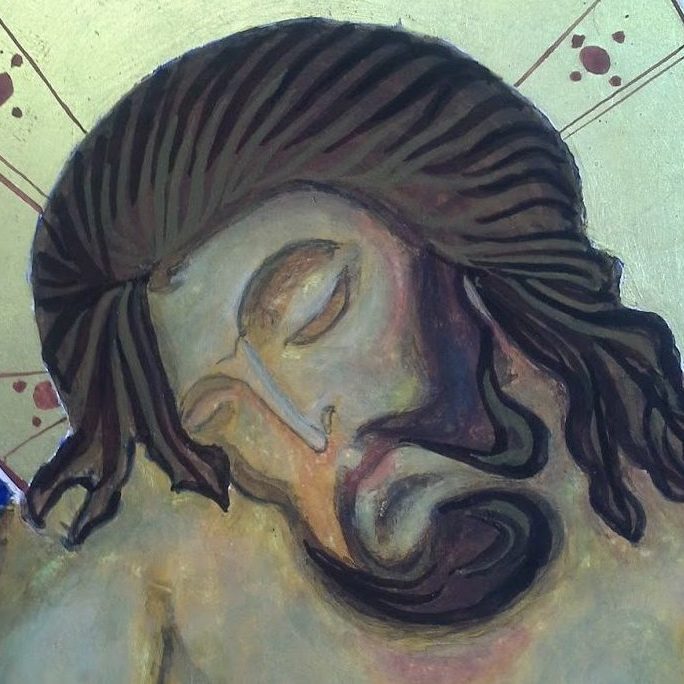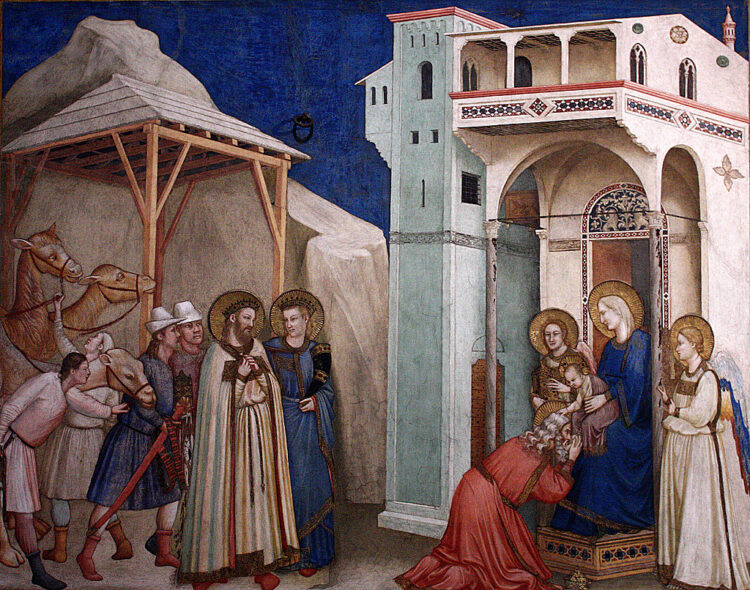Today we celebrate the Feast of the Epiphany. It is a quiet feast for us in the UK but in other countries, epiphany is full of activity. Processions of kings on horseback throw handfuls of sweets to eagerly awaiting children. Children put boxes of straw under their beds for the camels. Holes are cut into river ice so people can swim in holy water and retrieve golden coins. In Ireland women gather together to eat out – a treat for themselves after all the cooking over Christmas. We tend to take our Christmas decorations down on 12th Night – the end of the feast. But in other places Epiphany marks the beginning of a carnival season which ends only on Ash Wednesday.
But these Maji – the wise men or kings; who are they? Where do they come from and what do they mean?
In the Christmas stories the Magi appear only in Matthew’s Gospel. Now, theologians are still debating whether Matthew’s Gospel is written for a group of Christians who came from the Jewish faith , or whether the gospel was written for a church of Gentiles – converts to Christianity who didn’t start out as members of the Jewish faith. This was a very contentious issue amongst the first Christians and the argument is there throughout the pages of the New Testament if you look for it.
Matthew shows us both sides of this argument. His gospel begins with a long list of Jesus’ ancestors going all the way back to Abraham – a solidly Jewish family tree. On the other hand, Matthew brings us the story of the very determined gentile woman who argues with Jesus so that her daughter may be healed – even the dogs get to eat the crumbs under the table. And then there is the story of the magi – men from another religion, from another place, who come to find Jesus. Definitely Gentiles.
Matthew tells us that the Magi came from the East. They were probably priests of the Zoroastrian religion from Persia – modern day Iran. Zoroastrianism is an ancient religion – practised for 2000 years before Jesus and still practised today, mainly in Iran, India and North America. The Indian Parsees are Zoroastrians – the name Parsee being derived from the word ‘Persia’.
So there they are, at the beginning of Matthew’s gospel – these mysterious men from the East who had read the stars and come to find the new King that the stars indicated. They went initially to Herod’s palace In Jerusalem where they expected the new King would be. From there they were directed to Bethlehem – probably not to a stable – Matthew tells us it was a house. But even so this was an unexpected place to find a new king.
Matthew’s story tells that the Magi were warned in a dream not to return home via Herod’s palace as he had instructed, but to go home by a different route: they left for their own country by a different road.
This is the story of an encounter which changed people. We have no evidence that these mysterious men changed their faith because of their encounter. But behind these words about returning by a different road lies the suggestion that they were changed in some way because of what they had encountered. They came to distrust Herod – the powerful despot, and found that they’d found truth and holiness in the form of a small child in a poor town. The men who travelled home were different to the men who’d set out.
Matthew records no conversation between the Magi and their unlikely hosts. What might have been said? The Magi may have told what it was that made them set out – some conjunction of stars like the one we’ve had recently, perhaps. Mary may have told of angelic appearances and excitable shepherds. But there was not yet any theology of the cross – no idea of Jesus dying to save us, and there was none of Jesus’ teaching to follow. There wasn’t a lot to go on, really, as to why this particular child was so important.
What they saw then was both very simple and very profound. Here was a child, heralded by their religion as an important King, and by Mary’s story as the Messiah who would set his people free. But nevertheless, simply a child. A child, like all children, miraculous and beautiful. To them, a foreign child – a child from a different place, religion, nationality. And in this child, all the glory of God was revealed. This moment was all about recognising God’s presence in the face of someone different to yourself and in someone apparently unimportant.
And in such a way must always look. It is easy to reject someone apparently unlike ourselves in fear. Humans thrive on this – people who are different are a threat, they are potentially dangerous and to be kept out, kept away at all costs.
The word epiphany has to do with revelation. An epiphany is an aha!’ moment – ‘ ah, yes, I see!’ The ‘aha’ moment for the Magi was all about the recognition of the other, the stranger, as of singular preciousness and of divine splendour. And so they went back by another road. They went back changed. They went back even wiser than when they came.
And so must we look at those who are different from us as children of God, as humans made in God’s image, as precious people in largely unglamorous places. The face of God in the face of someone different to ourselves. And then we too will travel by a different road, wiser and changed.
Tweet
